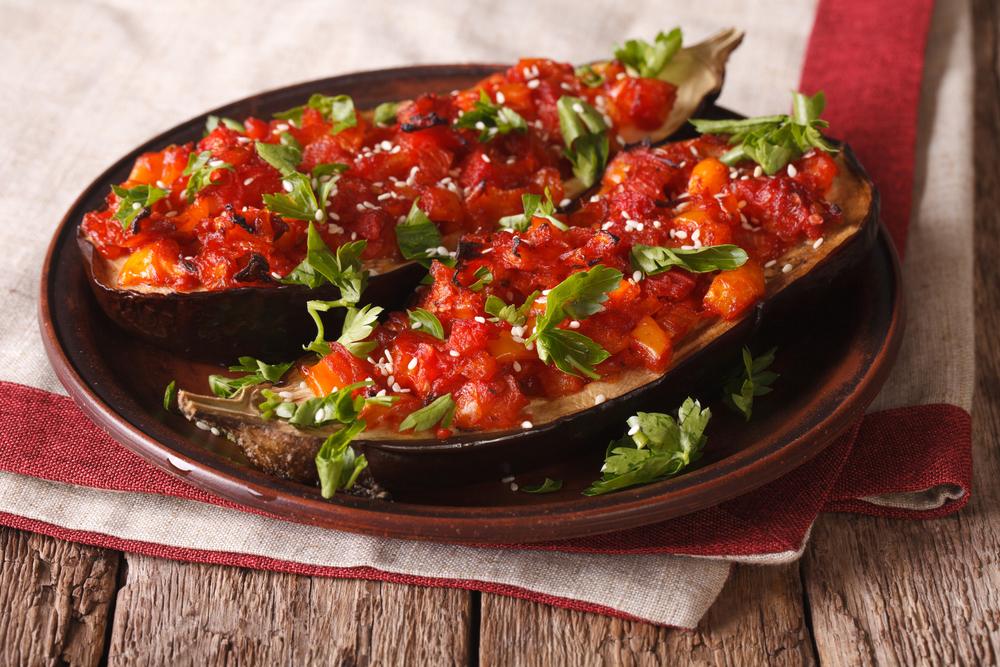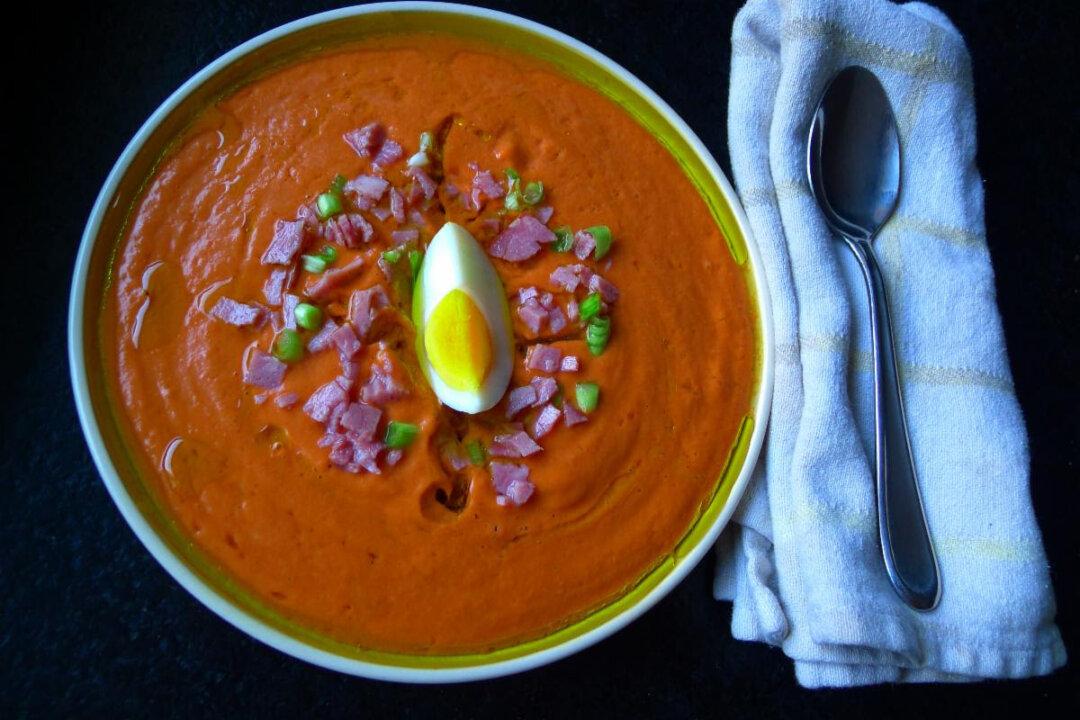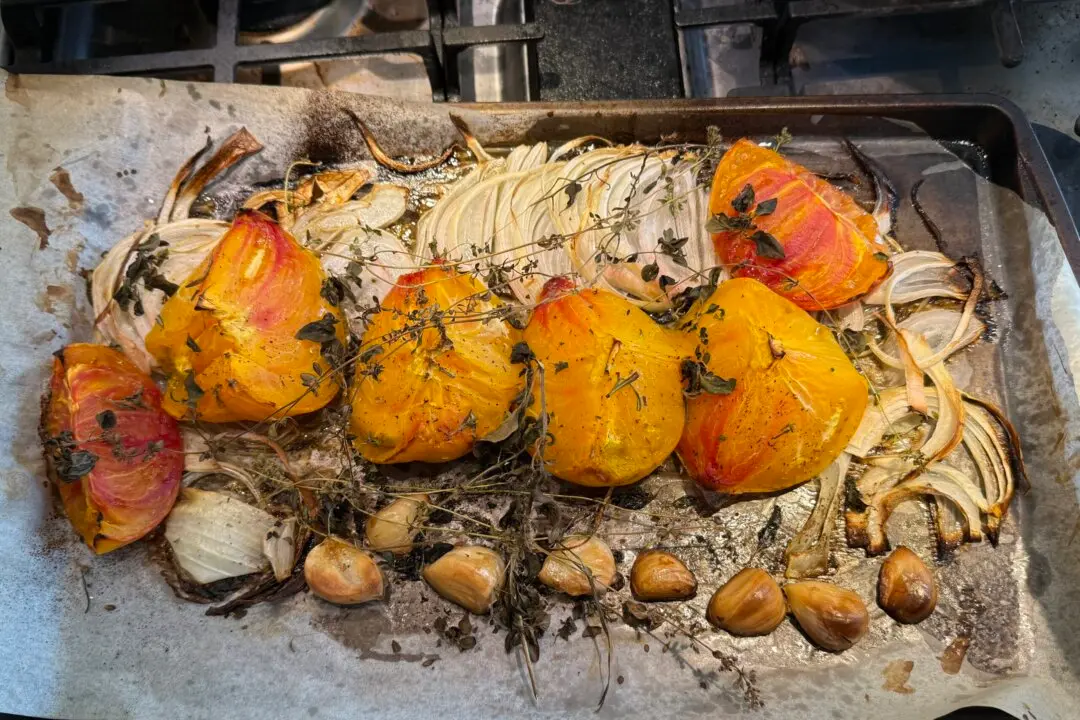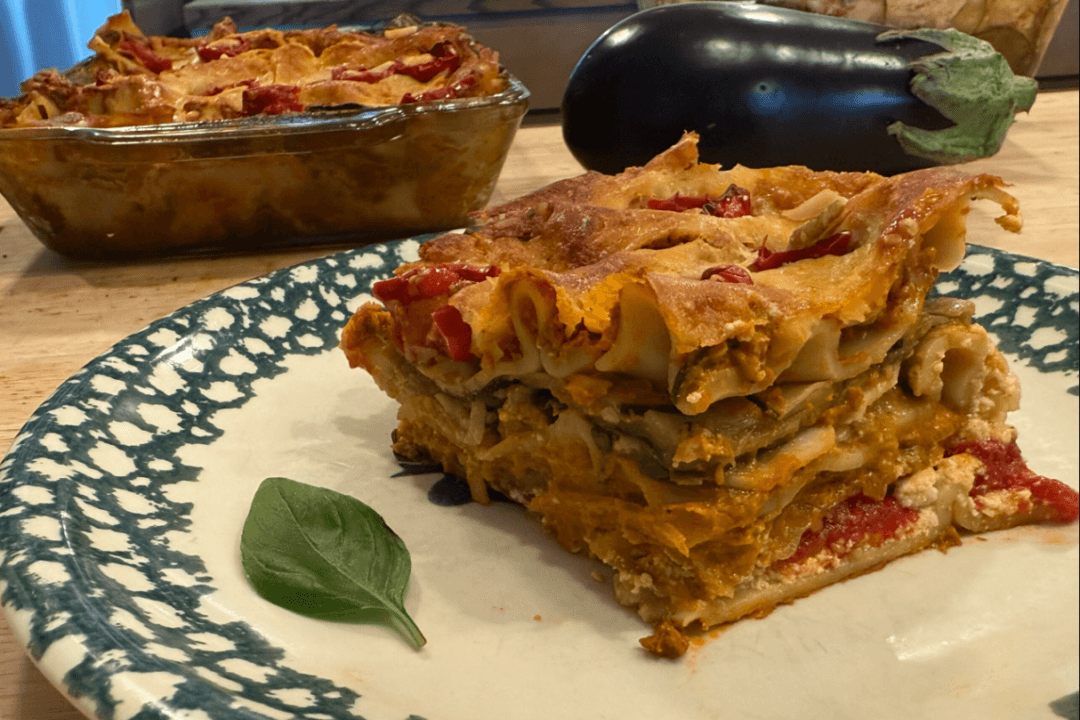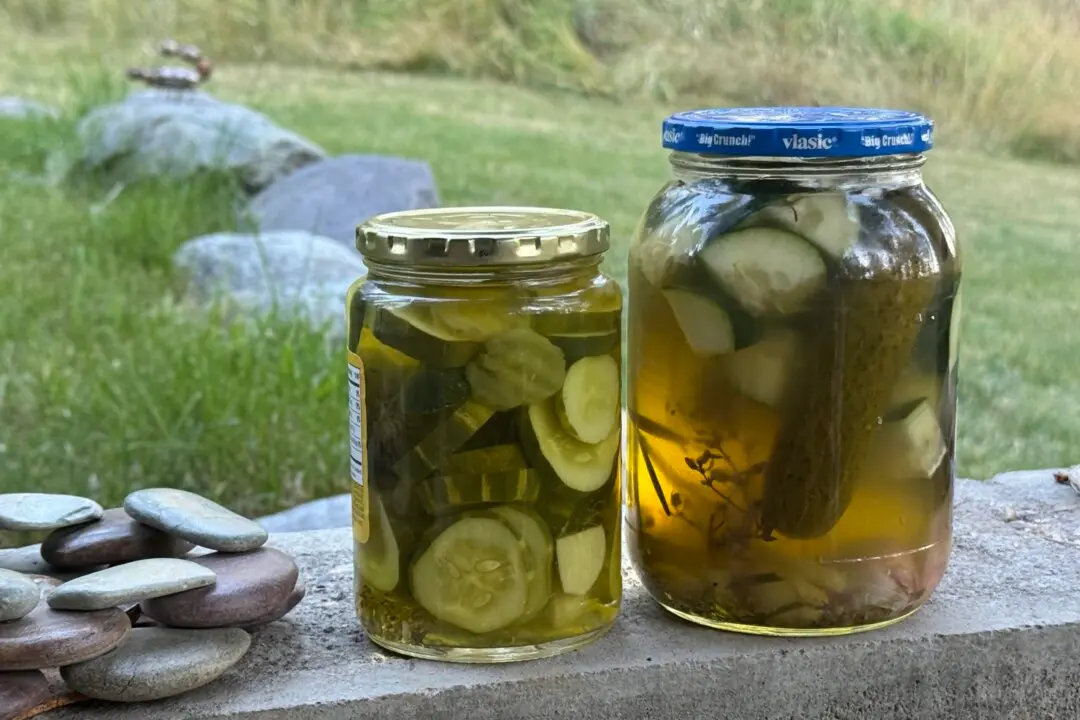Imam bayildi is an eggplant dish named for its ability to separate a man from his consciousness. The Turkish phrase means, “the imam fainted,” and the implication is that the decadent and aromatic experience of eating this glorious dish knocked the imam out cold.
There are other theories for the origin of the name, such as that the imam fainted when he realized how much olive oil his wife used to make it. Or maybe it’s a reference to some potentially psychoactive business going on. Eggplant is one of the more enigmatic members of the nightshade family, which includes tobacco. Most nightshades are either poisonous, hallucinogenic, medicinal, inflammatory, or any combination of the above, depending on the dosage. Eggplant, tomato, potato, and pepper are pretty much the only edible species in this family, and they have small amounts of nicotine and other alkaloids, a type of molecule that’s diversely represented in the nightshade family. While tomatoes, potatoes, and peppers all come from the Americas, the enigmatic eggplant was domesticated in Asia. So maybe the imam got a weird eggplant?

